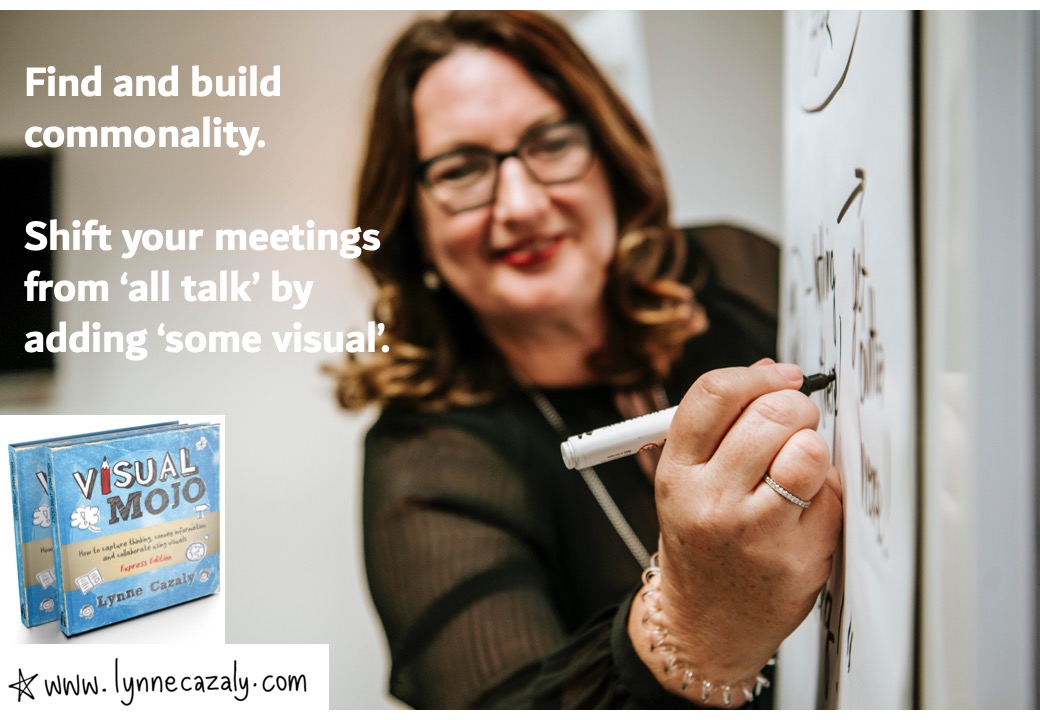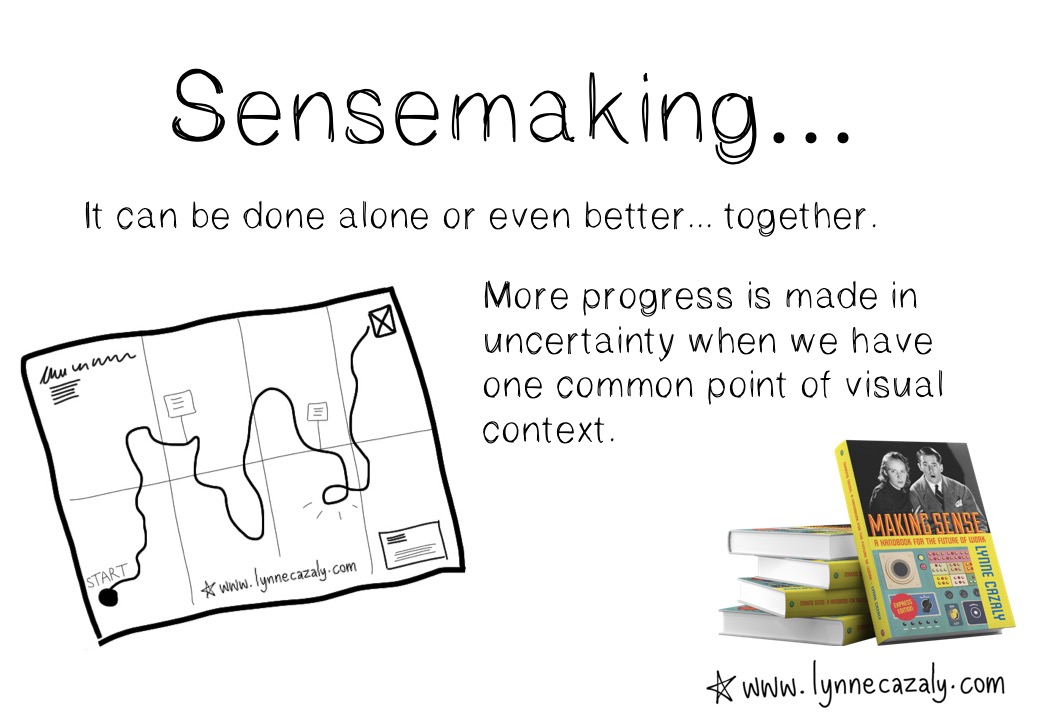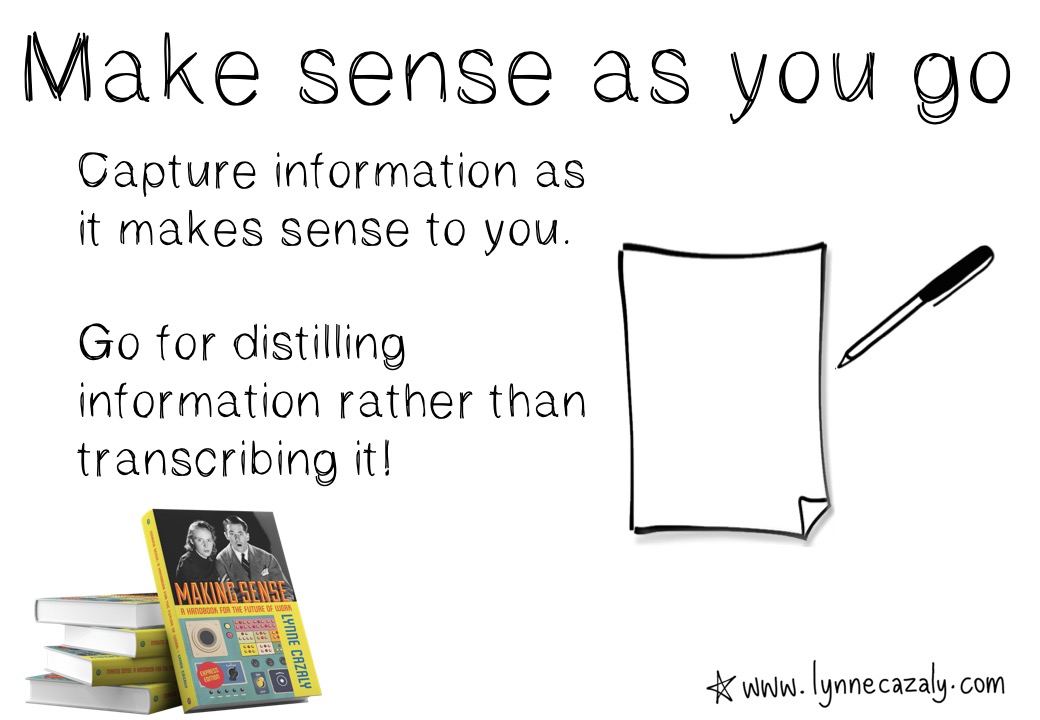End 'all-talk' meetings
 Friday, December 20, 2019 at 11:34AM
Friday, December 20, 2019 at 11:34AM  Travelling on a Melbourne tram yesterday, I was riding past a business office not far from where I live. One of the company's meeting rooms faces the street, so I always look in as we pass by to see what they're doing in their meetings.
Travelling on a Melbourne tram yesterday, I was riding past a business office not far from where I live. One of the company's meeting rooms faces the street, so I always look in as we pass by to see what they're doing in their meetings.
Of the many, many times I've gone past, they seem to always be:
- sitting at the table,
- looking at each other,
- talking at or with each other.
A fairly standard meeting. I call it an 'all-talk' meeting. They're not looking at anything; just each other.
Sure, eye contact and connection is important but meetings that are all-talk are worse in terms of productivity, engagement, clarity and decision-making.
If a 'common point of visual context' was used - a visual something... anything for them to look at - productivity would peak! A visual on the wall, a whiteboard, a flip chart, heck use the window!
When we're making sense of information and all we use is each other, we miss out on the opportunity to find and build commonality.
Meetings give us information overload; then we go for relief, distraction ...and we switch off.
Shift your meetings from 'all talk' by adding 'some visual'. It's plenty better!




















